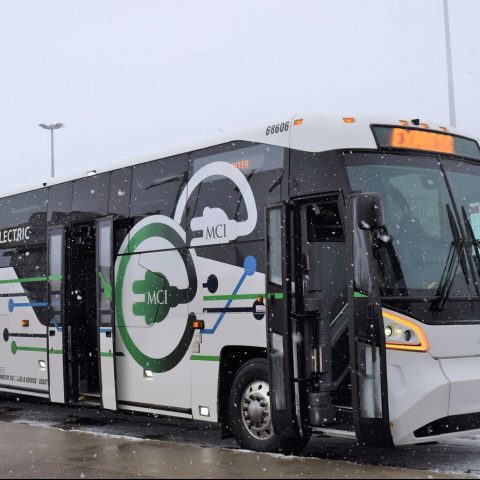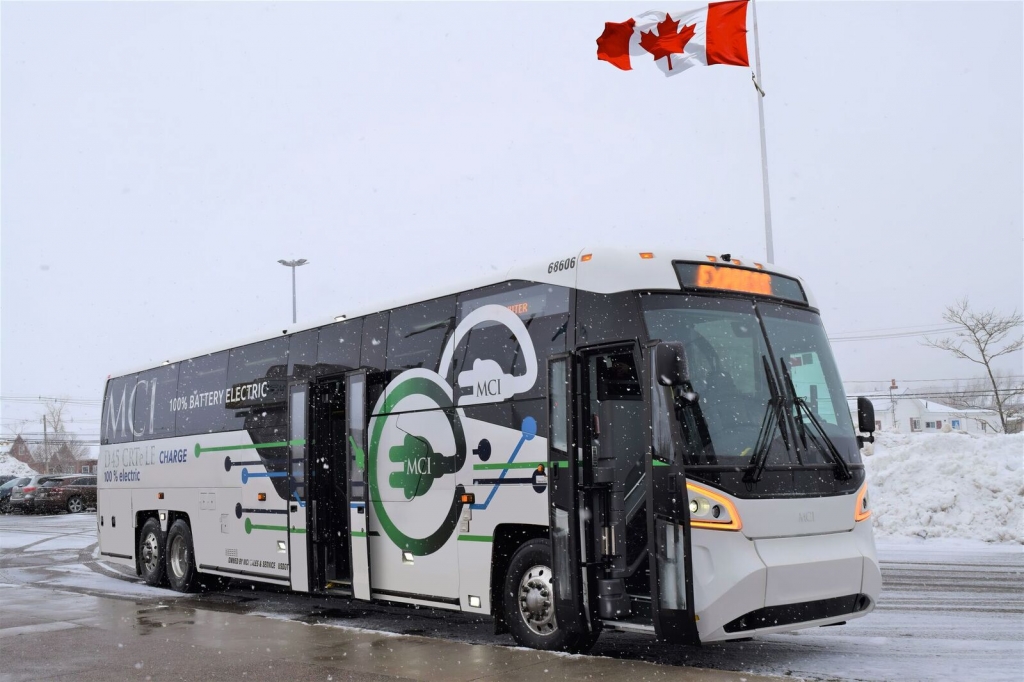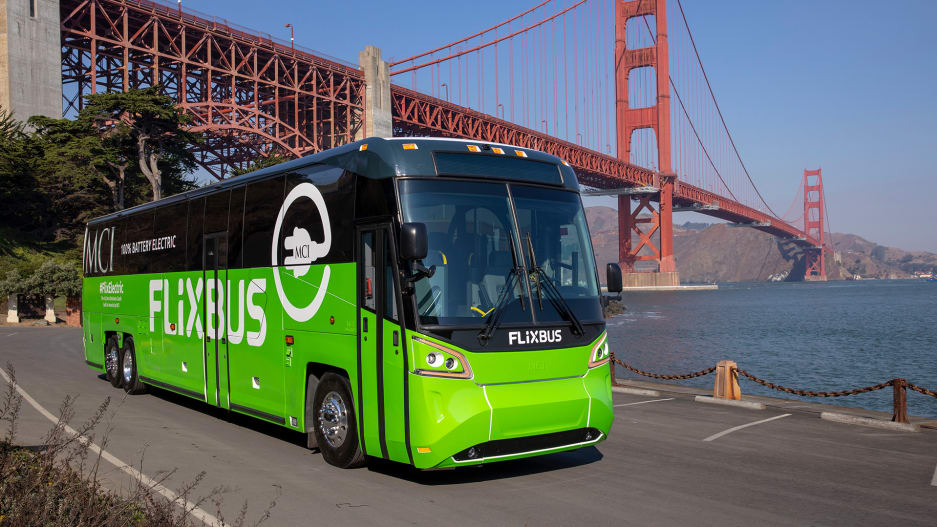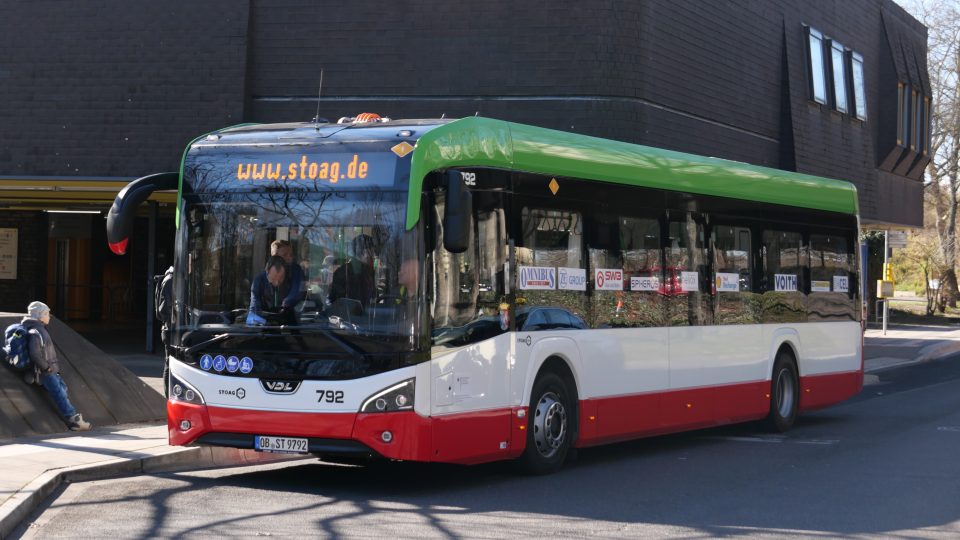Canada, Coach Atlantic Maritime Bus to introduce electric coach by 2022. A test with MCI
First time on Canadian roads for the MCI D45 CRTe LE battery-electric coach, already tested by Flixbus in October 2019. On 9-11 March the long-distance zero emission vehicle has been running through Prince Edward Island, New Brunswick, and Nova Scotia. The operator Coach Atlantic Maritime Bus is the first to deploy, although just for a pilot, an […]

First time on Canadian roads for the MCI D45 CRTe LE battery-electric coach, already tested by Flixbus in October 2019. On 9-11 March the long-distance zero emission vehicle has been running through Prince Edward Island, New Brunswick, and Nova Scotia.
The operator Coach Atlantic Maritime Bus is the first to deploy, although just for a pilot, an electric coach in Canada, testing it on its regular routes. Government officials, transportation stakeholders and sustainability experts also took part in the tour. The bus company claims it will introduce battery-electric vehicles to its operation by 2022.

Two battery-electric coaches in MCI’s range
MCI offers two battery-electric models. The J4500e (focused on tour, charter and employee shuttle markets) will deliver later this year and due to the high floor configuration the coach can be configured for more than 370 km at the top end by adding more batteries to achieve a capacity of 544 kWh.
The D45 CRTe LE, which features a patented LE (Low Entry) vestibule with a seating area and ramp that significantly improves dwell times and the boarding and ride experience for passengers with disabilities and mobility will be available in 2021.
The electric coach features a 750 V Siemens electric drive motor capable of 350 HP and maximum torque of 3,320 ft-lb. Energy comes from a 389 kWh energy storage system built on the ultra-high energy NMC lithium-ion cell platform from US-based XALT Energy.

Both models share the same electric platform. McDonald and the engineering team at MCI have spent the past two years testing MCI’s first battery-electric vehicles in varied road and weather conditions including extreme cold and snow in Michigan’s Northern Peninsula during 2019’s polar vortex.
Coach Atlantic Maritime Bus will also test MCI’s latest safety and fleet management technology on the new 54-seat MCI D45 CRTe LE model, including the benefits of MCI Connect Telematics. MCI’s new diagnostic system, standard on 2021 coaches, will measure key performance metrics including distance and time on route, auxiliary systems and battery efficiency related to grade and ambient temperature in real time. According to MCI’s McDonald, the data collected will be used to help Coach Atlantic Maritime Bus plan its future fleet needs.
Coach Atlantic Maritime Bus and the commitment to e-buses
Coach Atlantic Maritime Bus has committed to green strategies throughout its offices, maintenance hubs and service routes, and anticipates introducing battery electric to its operation by 2022. The first test has been carried out with the Canadian manufacturer MCI, that belongs to the New Flyer group and has production facilities based in Winnipeg.
MCI’s all-electric move is supported by New Flyer’s 50 years of electric experience and New Flyer Infrastructure Solutions, a full-suite of services that help deliver charging specifications to meet each customer’s needs. New Flyer actively supports over 41,000 heavy-duty transit buses currently in service, of which 7,300 are powered by electric motors and battery propulsion and 1,600 are zero-emission. Its battery-electric bus programs are deployed across North America.
MCI D45 CRTe LE available in 2021
“Bus travel is already the most-sustainable form of long-distance travel. Now, with MCI’s commitment to battery-electric, we can transform our communities and improve our carbon footprint even further” said Mike Cassidy, Principal of the Cassidy Group, owner of Coach Atlantic Maritime Bus.
“MCI’s electric era has arrived,” said Ian Smart, MCI President. “Backed by extensive testing and technical expertise, to robust NFI Parts support, and electric training available to operators’ technicians, our CHARGE model lineup is ready to serve innovators like Coach Atlantic Maritime Bus with long-term reliability. MCI is honored to team with Coach Atlantic Maritime Bus in this milestone moment in Canada, where our Winnipeg production facilities, Montreal-based MCI Service Center and heritage are rooted.”
“Our MCI D45 CRTe LE is built for the range and distances required on Coach Atlantic Maritime Bus routes,” said Michael McDonald, MCI’s Sustainable Transportation Specialist. “Projected range is an average of 210 km at 389 kWh.”







